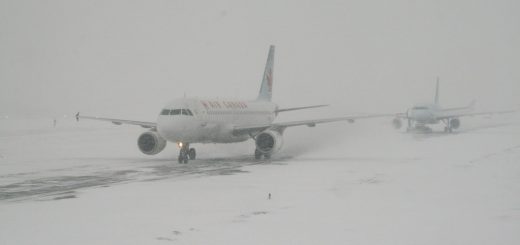The Saga of Uber’s Arbitration Clause Continues: Heller v Uber Technologies

The phrase “call an Uber” has become a ubiquitous part of modern parlance, just as the service itself has become a common feature of how people get from point A to point B. The ride-sharing service is now available in hundreds of cities around the world, and has transformed the personal transportation industry. But the apparent success of Uber’s business model has been accompanied by growing concerns respecting safety, regulation, and – as evidenced by this appeal – workers’ rights.
In Heller v Uber Technologies 2018 ONSC 718 [Heller OCJ], Uber brought a preliminary motion to stay a proposed class action brought by a driver in favour of arbitration in the Netherlands. Justice Paul Perell ruled for Uber and granted the stay. For an overview of Justice Perell’s ruling, please see TheCourt.ca’s post here. In Heller v Uber Technologies 2019 ONCA 1 [Heller], the Court of Appeal for Ontario (the “Court”) overturned the ruling, concentrating on the validity of the arbitration clause in Uber’s services agreement. According to this contract, disputes arising between drivers and Uber must be resolved via arbitration in the Netherlands.
The decision of the appellate court suggests that while arbitration clauses are not yet explicitly banned in the Ontario employment context (as they are in the consumer context) courts may nevertheless find them invalid on a number of grounds. The implication of this decision is that employers may not opt out of Ontario employment standards through cleverly constructed boilerplate.
Factual Background
The appellant in this case, David Heller, is a resident of Ontario. Mr. Heller entered into two agreements with Uber to use its apps: first in June 2016 as a driver, and then in December 2016 as an UberEATS driver. Each agreement contained an arbitration clause which stated that “this Agreement shall be exclusively governed by and construed in accordance with the laws of The Netherlands” (Heller, para 11). To be a driver for Uber, an individual must download the app and agree to the terms by clicking “YES, I AGREE” twice (Heller, para 8). After determining that the applicant driver has a valid driver’s licence, vehicle registration, and is eligible to work in Canada, the Uber driver’s app is activated and will connect the driver to customers. Uber sets the fare for each ride, and what the driver will collect in remuneration. It transfers this amount derived from the fare (minus Uber’s fees) to the driver after customers are charged.
If a dispute arises between a driver and Uber, the arbitration clause creates one track for dispute resolution. First, the driver may call a Customer Service Representative (CSR) based in the Philippines or Chicago. If this option does not yield a resolution, the arbitration clause requires the driver to pursue dispute resolution with the company through arbitration that must occur in Amsterdam. As an Uber driver, Mr. Heller made approximately $400-$600 per month. The administrative cost for bringing his dispute to the Netherlands – not including travel, accommodation, counsel fees, and other expenses associated with the trip – would have been $14,500, to be paid up-front (Heller, para 15).
Mr. Heller sought to bring a class action in Ontario, the province where he works as an UberEATS driver. His claim was that Uber misclassifies its drivers as independent contractors instead of employees, thereby avoiding Ontario’s Employment Standards Act, 2000, SO 2000, c 41 [ESA] requirements that employees be paid minimum wage, vacation pay, etc. The putative class included any Uber driver in Ontario since 2012 – regardless of whether they were still driving for Uber – and claimed $400 million in damages.
The Court of Appeal for Ontario
Writing for a unanimous bench, Justice Nordheimer overruled Justice Perell, finding that he erred in granting Uber’s request to stay the class action. While the Court agreed with Justice Perell that an application of either the ICAA or the Arbitration Act would not change the outcome of the matter, it expressed “serious reservations about the motion judge’s conclusion that the relationship between the parties here is a commercial one” (Heller, para 21). Since the Arbitration Act is more commonly used to determine the enforceability of arbitration clauses, the Court applied it for the purpose of the appeal (Heller, para 21). The two determining issues in the appeal are distinct. The first issue is whether the arbitration clause constitutes a violation of section 5(1) of the ESA. The second issue is whether the arbitration clause itself is unconscionable and therefore invalid. The Court found that both issues independently yield the same result: the arbitration clause is invalid.
Does the Arbitration Clause Violate the ESA?
To determine whether Uber’s arbitration clause violates section 5(1) of the ESA, the Court turned to section 7 of the Arbitration Act, which requires that a proceeding be stayed if it is started outside of the arbitration outlined in the arbitration clause (Heller, para 23). The section allows for a few exceptions to the stay, one of which is the finding that the clause itself is invalid. If the arbitration clause amounts to an illegal contracting out of the ESA, it will be invalid and the stay will have been erroneously awarded. The Court noted that this analysis does not require it to determine whether Mr. Heller is an employee or an independent contractor – its task is to determine if the arbitration clause is valid. If it is invalid, then it falls into one of the exceptions to section 7(1) of the Arbitration Act, rendering the stay not mandatory but rather a matter of the Court’s discretion (Heller, para 26). Since Uber’s motion to stay was a preliminary motion, Justice Nordheimer at the Court of Appeal noted that the Court will presume at this stage that the appellant’s claim can be proven if the matter proceeds (Heller, para 27). He proceeded to find that if Mr. Heller is indeed an employee of Uber, and that to bind him to arbitration in the Netherlands would constitute a contracting out of his rights under the ESA.
Employees working in Ontario cannot, according to section 5(2) of the ESA, agree to terms in a contract that provide them with fewer benefits than those outlined in the Ontario legislation. Enforcing Uber’s arbitration clause would result in its drivers being unable to pursue complaints to the Ministry of Labour, which the Court determined to be an employment standard and therefore the minimum afforded to employees in Ontario (Heller, para 32). Uber argued that employees in Ontario may pursue a complaint against their employer either through the Ministry or through a civil proceeding (but not both) and that consequently its arbitration clause falls into the category of a civil proceeding.
The Court rejected this argument. To include arbitration as a civil proceeding under the ESA would enable employers to include arbitration clauses as a means of blocking workers from pursuing claims with the Ministry (Heller, para 37). This runs contrary not only to the purpose of theESA, but also to the Supreme Court of Canada’s ruling in Machtinger v HOJ Industries, [1992] 1 SCR 986. In this ruling, it was held that interpretations that promote compliance with an act are to be favoured over interpretations that favour non-compliance (Heller, para 37). The Court found that upholding the arbitration clause would allow for Uber to set up a dispute resolution structure in which drivers would not have a viable means of enforcing their rights under the ESA (Heller, para 43). Shortly put, the arbitration clause facilitates non-compliance. As a matter of policy, the Court further held that workers in Ontario ought to be able to have their employment-related disputes determined in the province where they actually work. The Court thus concluded that the arbitration clause is invalid.
Is the Arbitration Clause Unconscionable?
Separate from the issue of whether the arbitration clause constitutes an illegal contracting out of the ESA, the Court also independently found the clause to be invalid on the grounds of unconscionability. The Court held that Justice Perell’s dismissal of the Mr. Heller’s unconscionability arguments amounted to a “palpable and overriding error of fact” (Heller, para 53). The first error on this point related to the characterization of the dispute resolution mechanisms currently available to Uber drivers. Justice Perell held that most disputes could be resolved through CSRs, and that only the most serious of disputes would end up in arbitration in the Netherlands. The Court disagreed: “[T]o the contrary, all disputes require arbitration in the Netherlands unless the driver resolves his/her complaint voluntarily with Uber” (Heller, para 56).
The second error arose in Justice Perell’s characterization of the impact of the arbitration clause on the claim at hand. In his analysis, Justice Perell considered whether the proposed class action – with its $400 million damages claim – amounted to a “significant” claim that would warrant travel to the Netherlands (Heller, para 57). The Court here clarified a point on the nature of class actions, noting that “until it is certified, [a class action] remains, in essence, a single claim by the appellant” (Heller, para 58). When the scale of the claim is thus considered, the cost to a single driver who makes $400-$600 per week of pursuing a claim in the Netherlands is unfeasible.
The Court also considered whether Justice Perell applied the correct test for determining unconscionability in a contract in Ontario. While Justice Perell applied the British Columbia test set out in Morrison v Coast Finance Ltd (1965), 55 DLR (2d) 710, the Court here favoured the four-element test established in Titus v William F. Cooke Enterprises Inc., 2007 ONCA 573 [Titus] (Heller, para 60). In Titus, the Court set out the following elements for determining whether a term is unconscionable. First, the term is the result of a “grossly unfair and improvident transaction”; second, the party claiming unconscionability did not have independent legal advice before entering into the agreement; third, there is evidence of an imbalance in bargaining power between the parties; and fourth, the party benefitting from the provision knowingly took advantage of the other party (Heller, para 60). As with the issue of which arbitration legislation applies, either test produces the same result: namely, a finding of unconscionability (Heller, para 62). This conclusion hinges on an assessment of the arbitration clause “in the context in which it is intended to apply” (Heller, para 68).
The Court applied the four elements set out in Titus to Mr. Heller’s claim. First, Uber’s services agreement was found to be unfair on its face due to the costs that it imposed on individual drivers, the travel associated with the pursuit of a complaint, and the fact that drivers must have their rights determined in a jurisdiction other than where they work. Second, drivers who do not have legal advice prior to entering into the service agreement will have no ability to negotiate the terms: it is a unilateral agreement. Third, Uber acknowledged that there is a power imbalance with respect to bargaining power between drivers and the company. Fourth, the Court noted that it is not unreasonable to infer that, given these imbalances in power, Uber “knowingly and intentionally” created the arbitration clause to benefit itself (Heller, para 68). The Court concluded by characterizing the arbitration clause as “[operating] to defeat the very claims it purports to resolve” (Heller, para 70).
Concluding Thoughts
If the motion to stay the proposed class action had been upheld by the Court of Appeal, Uber drivers would have been left with virtually no viable option to pursue a claim of misclassification (or any other dispute) against the company. Arbitration in the Netherlands is prohibitively expensive for a person who is paid minimum wage: it does not follow that a resident of Ontario, who works in Ontario, should have to travel to the Netherlands to enforce their rights as a worker.
According to Justice Perell, the arbitration clause was enforceable. Yet it was an untenable decision. The Court of Appeal’s reasons – though strongly worded– embrace the broader public policy concerns at the heart of this case and apply a more rigorous analysis of the two determinative issues: whether the arbitration clause amounts to an illegal contracting out of the ESA, and whether the clause is itself unconscionable. With respect to the former, Justice Perell’s ruling flagged how section 5(1) of the ESA may require clarification akin to that of the CPA when it comes to arbitration clauses.
A few contextual developments bear a brief mention as they relate to this case’s future. First, the initial class action was brought forward by a single firm, Samfiru Tumarkin LLP. For the appeal, class counsel expanded to include lawyers from Cavalluzzo LLP, a larger employee-side labour and employment firm in Toronto with experience in employment class actions. Second, Uber faces similar employment misclassification class actions in other jurisdictions – notably in California, New York, and London. With an integral part of its business model on the line, Uber will likely appeal to the Supreme Court of Canada: the Court of Appeal’s decision has shown that there is an unconscionable chink in Uber’s seemingly class action-proof armour. This may not be the last time we hear from Mr. Heller and Uber.








Join the conversation